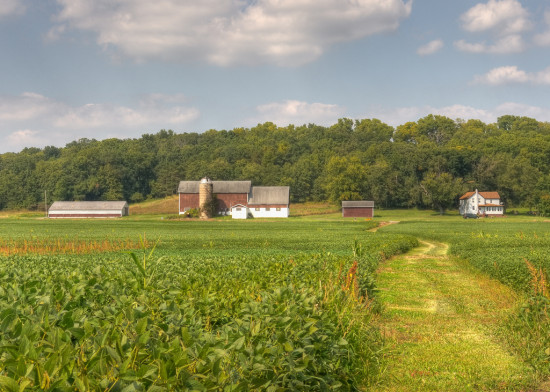Jadyn comments on my apple orchard comparison video:
I find it strange as a permaculture person that sometimes the best people to get advice from are people doing everything the conventional way. Mostly, in my mind they are doing things the wrong way but they have done it long enough that they even get things right.
I replied:
Sometimes it’s useful, since they aren’t living in the theoretical. If they don’t get fruit, they go out of business.
Think about it.
If most suburban gardeners plant a garden that doesn’t do well, so what? They just write it off as a loss and visit the grocery store for their beans and lettuce.
If you are into permaculture and you plant a food forest that makes you happy but doesn’t get you much in yields, great – you’ve got a cool hobby.
But if your livelihood relies on getting a good harvest, everything changes. You can’t afford to be theoretical, or laissez-faire in your approach. You can’t be super committed to a philosophy that doesn’t bering immediate results. You need hard data and consistent yields. This is how farming works. So if you are told to grow GMO corn, and space it like this, and spray it with that, and fertilize it with that, and you’ll get _____ bushels of corn per acre, because the scientists at the extension said so – and that corn is going to ensure you can pay your mortgage – you don’t go testing out landraces or seeing if you can plant a food forest with corn in it.
If you observe what commercial growers do, and then reject some of it in order to align better with your values, you will get better at gardening.
They have skin in the game. Theoreticians don’t.
If your livelihood hangs on your production of food, you’ll definitely learn fast and try to get better margins. They get things right (at least in terms of yield) because they have to.
Modern farmers get results. However, I would much prefer to see them get results without spraying pesticides and herbicides. There is a balance that needs to be struck.
If you go too far into what you “wish” the world was like, instead of what it’s actually like, you don’t get anything. I’ve encountered many ideologues of this type in my years of garden writing. I’ve also encountered people that claim all the concerns about the environment, factory farming, etc., are just “libtard talking points.”
It’s all a balance. We should be good stewards of the soil God gave us to tend, and we should also remember that feeding people is very important. Where you fall on the spectrum of practical vs. theoretical may vary. We’ve tried to maintain a balance in our gardens, but we also realize we aren’t trying to feed an entire town. We’re also not totally committed to a philosophy of letting nature be, since if we did that, we’d starve.
Learn what you can from who you can, then discard what doesn’t work for you.


1 comment
“This is a great perspective! There’s so much we can learn from conventional farmers, especially when it comes to efficiency and scaling up. I really appreciate the balanced view you bring—there’s value in both traditional methods and newer sustainable practices. Thanks for sharing these insights!” —Ashley Scott
Comments are closed.